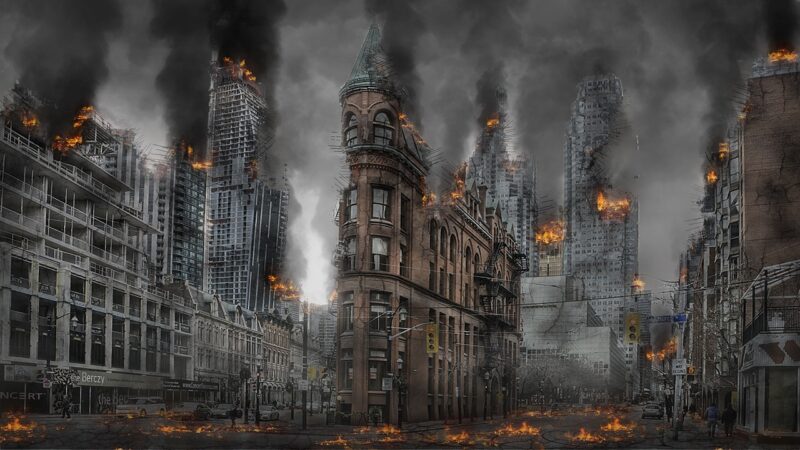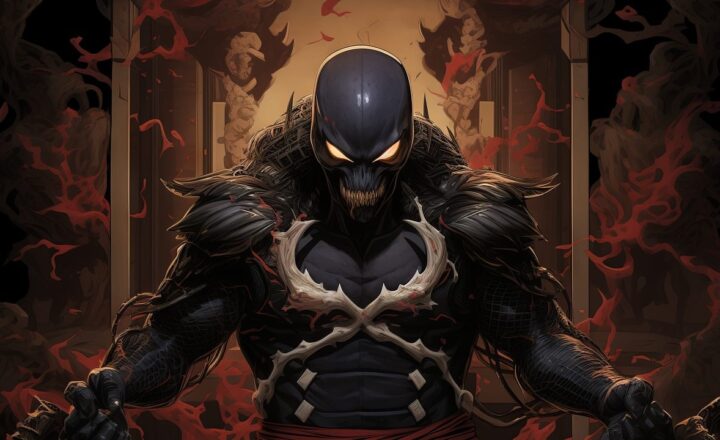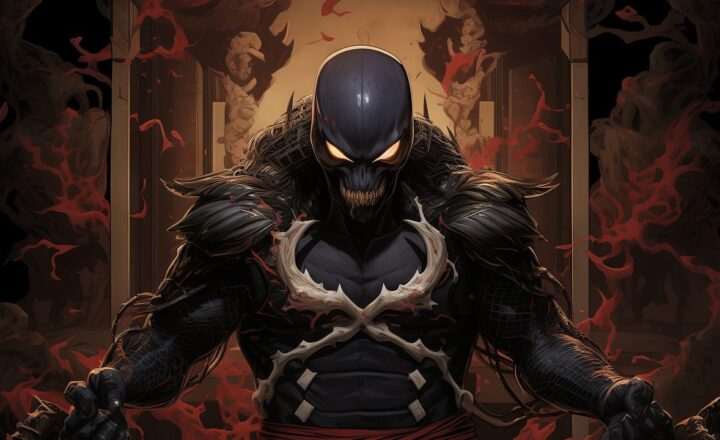How Thanos Became the Ultimate Villain in the Marvel Cinematic Universe
November 14, 2024

In the realm of superheroes, few villains can claim the iconic status held by Thanos in the Marvel Cinematic Universe (MCU). A character once seen primarily as a menacing shadow in post-credits scenes has evolved into a multifaceted antagonist whose motivations and philosophy provoke deep questions about power, responsibility, and the balance of life itself. This article delves into the evolution of Thanos, exploring how he transformed into the ultimate villain, leaving an indelible mark on the MCU.
1. The Genesis of Thanos: A Brief Background
Originally created by writer Jim Starlin, Thanos first appeared in ‘019’s “The Invincible Iron Man #55.” His early characterization was rooted in traditional comic book tropes—power, madness, and a relentless quest for domination. However, Marvel’s filmmakers recognized the potential for a deeper narrative arc, transforming him into a compelling character in the MCU.
Thanos’s origins lie on the planet Titan, a once-thriving world that faced catastrophic overpopulation and resource depletion. Through an exploration of his past, we find that Thanos was not merely a product of evil but a being who witnessed the destructive consequences of imbalance. This backstory forms the crux of his motivations and adds a layer of complexity to his character.
2. Thanos’s Philosophy: A Villain with a Mission
What makes Thanos particularly intriguing as a villain is his philosophical standpoint. Unlike many antagonists driven by greed or a thirst for chaos, Thanos believes he is on a mission to save the universe from itself. In his mind, the greatest threat is overpopulation—a concept he links to destruction and suffering.
Thanos’s infamous line, “I am inevitable,” encapsulates his determination to restore balance to the universe—at any cost. In his eyes, the act of wielding the Infinity Stones to erase half of all sentient life is an act of salvation, not destruction. This moral dichotomy challenges the audience to ponder ethical questions surrounding sacrifice and the greater good.
3. The Infinity Saga: Building the Threat
The build-up to Thanos’s rise as the ultimate villain was meticulously crafted over several phases of the MCU. Starting from his brief appearances in post-credit scenes to his full reveal in “Avengers: Infinity War,” the groundwork set an ominous tone. It created a sense of foreboding that permeated the franchise, keeping audiences engaged and invested in the narrative arc.
His formidable reputation is underscored by the deployment of the Infinity Stones, powerful artifacts that not only amplify his abilities but also symbolize his ability to control life itself. Each stone—the Space, Reality, Power, Time, Mind, and Soul stones—represents a core facet of existence, thereby cementing Thanos’s role as a god-like figure capable of enacting drastic change across the cosmos.
As he gathers the stones, each conquest highlights his ruthlessness and strategic brilliance, forcing the Avengers into a desperate fight for survival. The audience witnesses not just his power but the vulnerability of Earth’s mightiest heroes as they stand against him.
4. The Emotional Depth of Thanos: A Familial Tragedy
Adding another layer to his character is Thanos’s relationship with his daughter, Gamora. Their tumultuous bond serves as a focal point for his character development, showcasing his capacity for love—even if warped by his misguided ideology.
In a heartbreaking confrontation, Thanos reveals his painful sacrifices, including the tragic act of sacrificing Gamora to obtain the Soul Stone. This moment is pivotal, not only because it solidifies his commitment to his mission but also because it peels back the layers of his character, revealing both vulnerability and monstrous ambition. Furthermore, it challenges viewers to confront their comfort with loving characters who commit violent acts in pursuit of what they perceive as a noble cause.
5. The Climax: Avengers: Infinity War and Endgame
In “Avengers: Infinity War,” Thanos reaches his zenith, achieving his goal with tragic efficiency. The film is touted not just for its action but for daring to depict the hero’s failure, leading to a somber conclusion where half of all life is obliterated. This unconventional approach left audiences grappling with sorrow and disbelief, showcasing the stakes of Thanos’s philosophical quest and placing him at the center of an emotional maelstrom.
Conversely, “Avengers: Endgame” explores the aftermath of Thanos’s victory and the Avengers’ relentless efforts to restore balance. Even in his defeat, Thanos remains a towering figure. The film delves into themes of loss and redemption, ultimately showcasing how his actions shaped the narratives of those left behind, reinforcing his position as a catalyst in the MCU.
6. Legacy: The Impact of Thanos in Pop Culture
Thanos’s influence extends beyond the MCU. He has entered the cultural zeitgeist as a representation of the antihero archetype. His complex motivations have spurred discussions about morality, power, and sacrifice in popular media. The phrase, “I am inevitable,” has become emblematic of characters who embody a singular focus and conviction, acting as a mirror reflecting audiences’ own struggles with personal purpose.
Moreover, Thanos has inspired countless discussions among fans and analysts alike, contributing to academic discourse as a case study in villainy, ethics, and the fine line between heroism and villainy. His character serves as a powerful reminder that great narratives often stem from understanding the villain’s perspective—the antagonist’s quest for meaning and relevance.
Conclusion: Thanos – An Unforgettable Villain
Thanos’s emergence as the ultimate villain in the Marvel Cinematic Universe is a testament to thoughtful character development and rich narrative building. Armed with a complex existential philosophy and a deeply personal backstory, he transcends the role of a mere antagonist, embodying the underlying conflicts that shape the universe’s fabric.
As the MCU continues to evolve, Thanos’s legacy will likely endure, prompting future creators to explore the complexities of villainy in ways that challenge audiences to think critically about their definitions of good and evil. Thanos stands not only as a cinematic icon but as a compelling character whose story invites introspection and ignites conversations that resonate well beyond the screen.
In the end, Thanos’s unique blend of philosophy, emotion, and sheer will power reshaped the landscape of the superhero genre, ensuring that his legacy as the ultimate villain will be remembered for generations to come.







